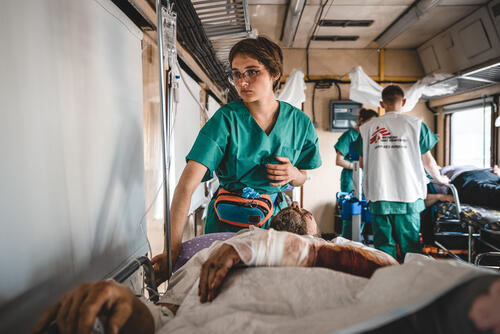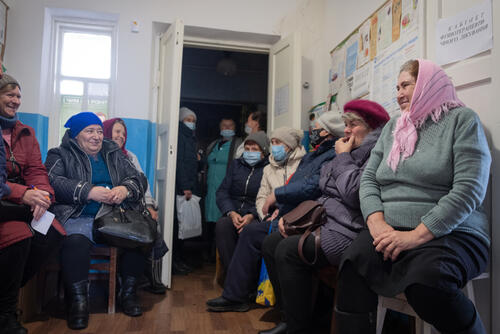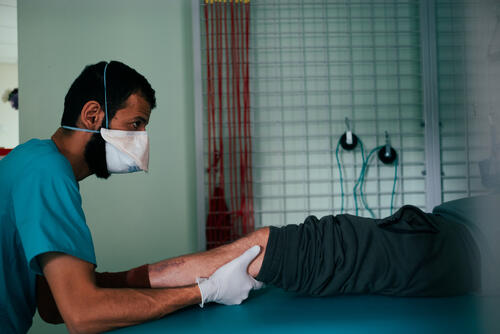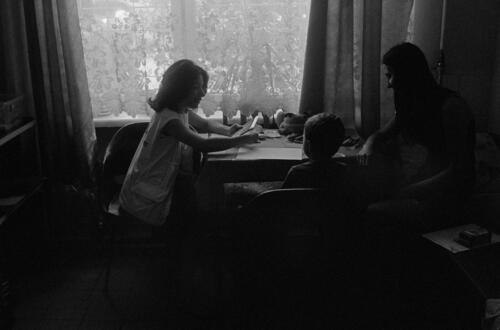Since late March 2022, MSF has operated a medical evacuation train in Ukraine, taking patients from hospitals in areas close to the frontlines in the country's war - mostly in the country's east - to hospitals that have greater capacity to provide treatment, mostly those in the west.
The two trains we operate, in conjunction with Ukraine's National Railways, are equipped with medical staff and equipment; one train has the capacity to take patients requiring intensive care.
Between 31 March and 6 May, MSF teams evacuated 653 patients. Just over half of those, 355 patients, have been injured as a direct result of the war.
The nature of the injuries we see on our medical evacuation train, as well as the stories patients tell our teams, clearly show that civilians are not spared the war in Ukraine. Each day, our teams on train hear stories of what our patients have experienced.
The below briefing note, No mercy for civilians: Troubling accounts from the MSF medical train in Ukraine, further details of the nature of the attacks and consequences of the war on civilians.
“So many people have died”
A woman in her 70sThe woman has asked to remain anonymous for her and her family’s security. who travelled on the train with her disabled husband shares her experience of living through this brutal war.
“Me and my husband lived in a small village in Luhansk region. It was a lovely little village with tidy streets and water, gas and electricity in each household. About 500 people lived there, but now only 30 to 50 are left. So many people have died. The bombing was happening from all sides. All the windows of my house shattered. My gate is full of holes from shrapnel. I would joke I have a huge spyhole in it now. My garden was completely destroyed by the shelling; potatoes, daffodils, all the flowers.
My husband is disabled. Last year, the social services gave us a special care bed. I built an improvised shelter around it and covered it with blankets. At the beginning of the war, when the shelling was further away, I would hide under his bed. Every time there was an explosion, I screamed in fear.
Later, when the shelling came closer, I hid in the basement of one of our neighbours’ houses, leaving him on his bed. I couldn’t carry him with me. He’s immobile and is too heavy for me. Every time I was afraid of what I might see when I returned. Once, when the windows of our house smashed, a piece of glass cut his leg. It wasn’t a deep injury but still, I felt so bad that I had left him on his own.
My neighbour offered her basement as a shelter to people in the neighbourhood. On 7 May, around 11 people were hiding there during a shelling. I was looking out of my window and saw two bombs fall on her house, crushing the roof and the floors. I was standing by the window, paralyzed, even though I knew that I should hide. I couldn’t help standing there staring.”
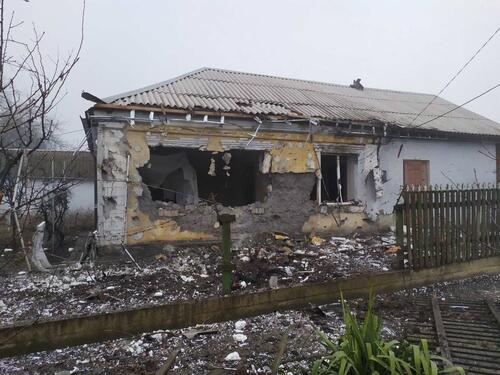
“I just couldn’t believe that there was nothing left of this two-story building, but some debris with 11 people under it. Since there was no special equipment, they only managed to get three people out: two of them were alive and one girl was dead. Maybe more people survived and were trapped under the house. We will never know.
Another house in my neighbourhood caught fire during a shelling, and the person who lived there was burnt inside. Her body was never found.
When the electricity and the phone network were cut off, we couldn’t talk to our children anymore. My mobile phone was damaged when the emergency suitcase I had packed was completely shredded by shrapnel.
One day, our neighbours suggested we approach the military to see if they could get us out. They gave us five minutes to pack and loaded my husband onto a truck. There was another elderly couple that was evacuated with us. The soldiers brought us to the nearby town where we stayed in the basement of an old school. It was damp and cold, so we wanted to get away from there as soon as possible. We filled out all sorts of forms just to move further away. Eventually, we were evacuated from there to Dnipro.
My daughter made it to Poland. Now she is finishing a course in Polish and wants us to come there. She says people are welcoming and take good care of refugees. But I’m afraid that we won’t be able to return to our hometown once we leave the country and settle somewhere else. Our house, our car, even my driving licence - everything was left behind.”



